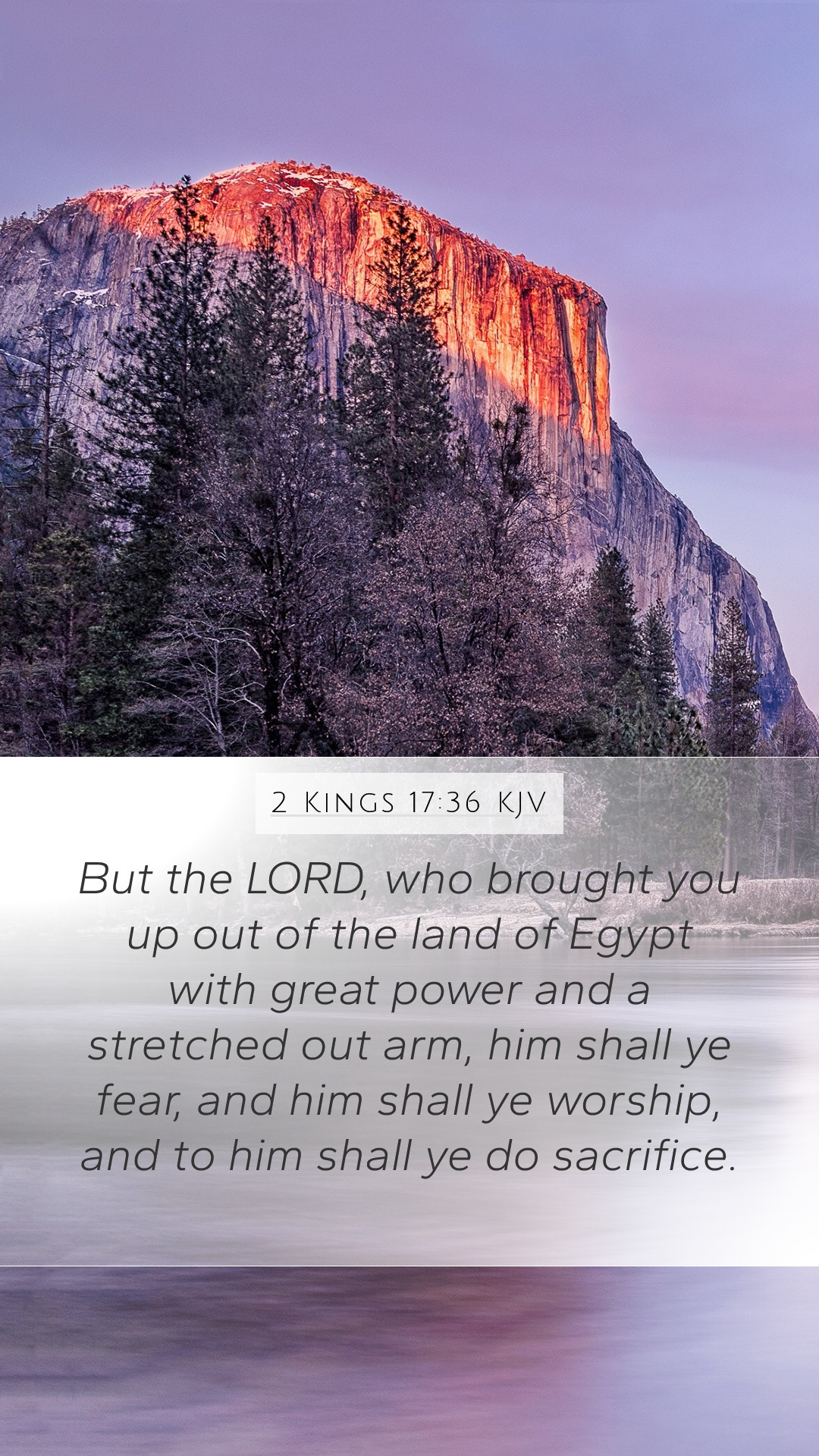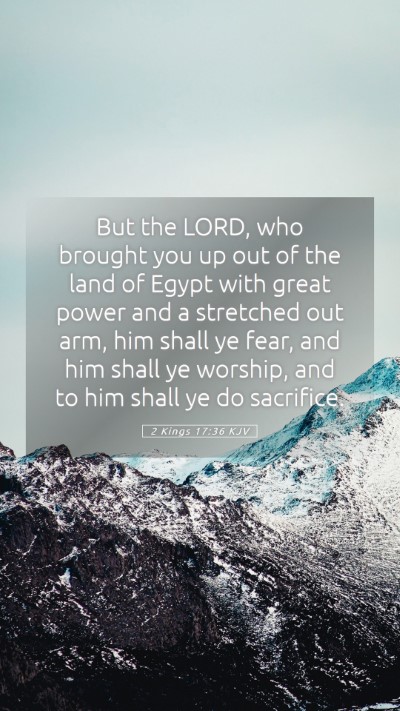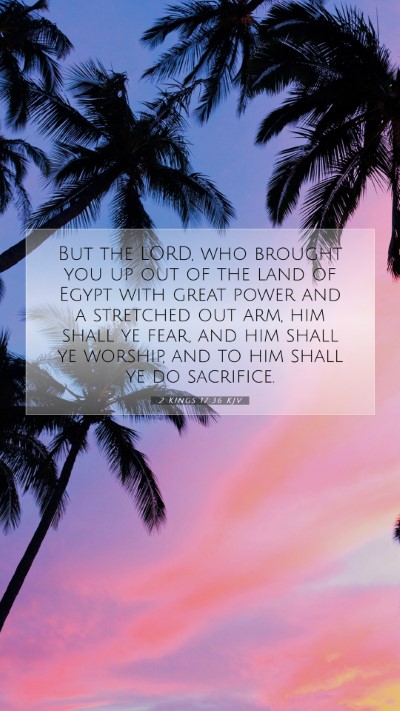Understanding 2 Kings 17:36
Verse: “But the Lord, who brought you up out of the land of Egypt with great power and a stretched-out arm, him shall ye fear, and him shall ye worship, and to him shall ye do sacrifice.”
Summary of Bible Verse Meanings
This verse emphasizes the necessity of reverence, worship, and service to the Lord, who is recognized as the one who liberated the Israelites from slavery in Egypt. The verse serves as a reminder of God's might and authority, encouraging believers to respond with fear—a profound respect—honor, and devotion.
Bible Verse Interpretations
The interpretation of this verse highlights the fundamental themes of deliverance and devotion. The mention of God bringing the Israelites out of Egypt reinforces His role as the savior and protector. This establishes a covenant relationship where the appropriate human response is to fear, worship, and sacrifice to Him alone.
Bible Verse Understanding
- Historical Context: Reflecting on the historical narrative, the context relates to the Babylonian captivity and the call back to allegiance with the God who had previously shown His power.
- Spiritual Application: For modern believers, this verse invites a personal reflection on one's relationship with God, emphasizing the importance of worship in daily life.
Bible Verse Explanations
According to Matthew Henry, God's past acts of salvation provide the foundation for our worship and obedience. Albert Barnes stresses that acknowledging God's power is essential in establishing a proper attitude towards Him. Meanwhile, Adam Clarke explains that the expressions used (e.g., “stretched-out arm”) signify God's might and the extraordinary nature of His works.
Bible Verse Commentary
The commentaries suggest that this verse serves both as a historical reminder and as a theological principle. It reinforces the idea that fear and worship should be directed towards God alone, contrasting this with the surrounding tendencies toward idol worship during the time of its writing.
Scripture Analysis
- This verse is not just an isolated statement; it ties back to significant themes throughout the Old Testament, particularly of deliverance and worship.
- The structuring of the commands emphasizes a sequential response: fear leads to worship, and worship leads to sacrifice.
Biblical Exegesis
Exegesis of this verse indicates a divine directive. The Lord's deliverance is not merely historical; it is a living reality that informs how humanity ought to live in relationship with Him. We see a cyclic pattern of remembering God's acts leading to fear and worship.
Bible Study Insights
This verse can serve as a focal point in Bible study groups, where participants can explore the nature of divine freedom and their own acts of worship in response. It encourages thought on how historical narratives affect contemporary faith practices.
Cross References
- Exodus 20:2-3: “I am the Lord your God, who brought you out of Egypt...”
- Deuteronomy 6:13: “Thou shalt fear the Lord thy God, and serve him...”
- Psalm 95:6: “O come, let us worship and bow down...”
Conclusion
This verse encapsulates a critical aspect of worship: the acknowledgment of God's past acts leads to a present-day response of reverence and service. It is an invitation to all believers to contemplate the weight of God's deliverance and respond accordingly in their lives. Understanding such Scriptures enriches online Bible study experiences, making each session valuable.


